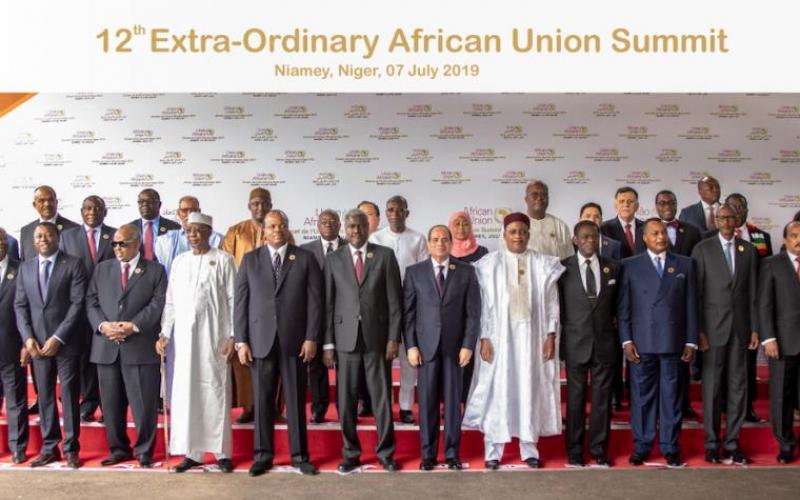by ABAYOMI AZIKIWE

55-nation bloc seeks to fuel economies around the continent
On 4 July, the 12th Extraordinary Summit of the African Union (AU) was held in Niamey, Niger to officially proclaim a project that is inherent within the notions of sovereignty and unity on the continent.
This African Continental Free Trade Area (AfCFTA) gathering took place in a nation in the western region [of Africa], which is endowed with uranium, one of the most strategic minerals in the world utilised for industrial, scientific and military purposes.
These contradictions within Niger related to its mineral wealth and the abject impoverishment of the masses of working class and rural people illustrates clearly the tremendous hurdles in which Africa must overcome to harness the economic and social potential of the AU member states. The AfCFTA was announced at a previous AU Summit in Kigali, Rwanda on 21 March 2018.
Over the past 16 months, some 27 governments have ratified the agreement while a total of 54 have signed the document mandating its establishment. The West African state of Ghana, once the fountainhead of Pan-Africanism during the 1950s and early to mid-1960s under the leadership of President Kwame Nkrumah, the foremost proponent of continental unification and socialism, was designated to host the secretariat for the AfCFTA.
In a statement released by the AU on 7 July, it says of the structure for the new continental body that: “The AfCFTA will be governed by five operational instruments, i.e. the Rules of Origin; the online negotiating forum; the monitoring and elimination of non-tariff barriers; a digital payments system and the African Trade Observatory. Each one was launched by different Heads of State and Government that included President Cyril Ramaphosa of South Africa, President Abdel Fattah El Sisi of Egypt who is current Chairperson of the AU, Moussa Faki Makamat, the Chairperson of the African Union Commission, and President Mahamadou Issoufou of Niger, who is the Champion of the AfCFTA.” [[i]]
Nevertheless, analysts have pointed to prospective barriers for the implementation of the AfCFTA emanating from the legacy of slavery and colonialism. Africa remains divided into 55 separate states where intra-regional and class differences are a source of the conflicts, which exist inside many countries.
These impediments are also related to the lack of adequate transportation and telecommunications infrastructure. In addition, the reliance upon western foreign exchange currency in the arena of trade provides incentives for the maintenance of the status quo.
Pambazuka for more
